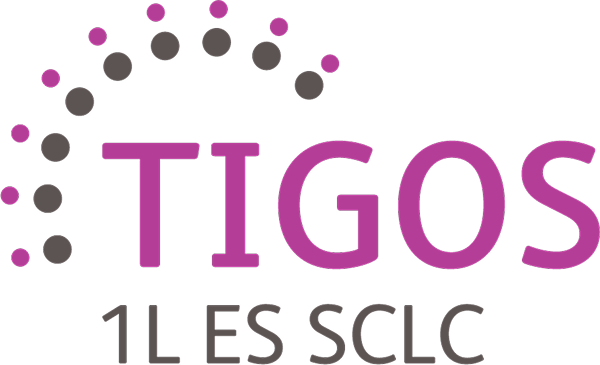Find a clinical trial location

TIGOS is a Phase 3, double-blind, randomized clinical trial comparing the safety and efficacy of
The investigational treatment,
Key Inclusion Criteria
- Be at least 18 years old at the time of signing the informed consent form
- Must have a histologically or cytologically confirmed diagnosis of SCLC and confirmation of extensive-stage. Participants who have received chemotherapy/chemoradiotherapy for limited-stage SCLC are eligible if treatment was completed at least 6 months prior to randomization.
- Have at least one measurable lesion outside the central nervous system (CNS) confirmed on imaging. Participants with CNS metastases are eligible if asymptomatic or previously treated.
- Have an ECOG performance status of 0 or 1.
- Must be eligible to receive platinum-based chemotherapy regimen and anti-PD(L)-1-based regimens as per locally approved drug labels and institutional guidelines.
Key Exclusion Criteria
- Participants who have received the following prior treatments are not eligible to participate:
- Prior treatment for extensive-stage SCLC.
- Prior treatment with an anti-PD-1, anti-PD-L1, or anti-CTLA-4 antibody, or any other antibody or drug specifically targeting T cell co-stimulation or checkpoint pathways.
- Prior treatment with an anti-fuc-GM1 therapy or any other drug specifically targeting fucosyl-GM1.
- Participants with untreated and symptomatic brain metastases are not eligible to participate.
-
Other Conditions:
- Leptomeningeal metastases.
- Malignancy-related superior vena cava syndrome that requires urgent radiation or may require urgent radiation in the immediate future.
- Pleural effusions that cannot be controlled with standard interventions.
- Concurrent malignancy.
- Grade 2+ peripheral sensory neuropathy.
- Active, known, or suspected autoimmune disease.
- Women who are pregnant or breastfeeding are not eligible to participate.
*Other protocol-defined inclusion-exclusion criteria may apply
What are the endpoints?
- The Primary Endpoint is Overall Survival.
- The secondary endpoints include Time Until Definitive Deterioration, Objective Response, Objective Response Rate, Duration of Response, and Progression-Free Survival.
What is the timeline of the study?
- Screening (28-day window): Eligibility will be established according to the key eligibility criteria found below. For additional information on screening procedures, please ask the study staff.
- Study treatment period: this involves an initial induction phase, followed by a maintenance phase. Patients will be randomly assigned to Randomized Therapy 1 or Randomized Therapy 2 as illustrated above.
- Post-treatment follow-up period: Participants will be followed for at least 135 days post treatment. Follow-up may last up to five years.
Enroll a patient or find out how to register your clinic as a trial site
First line of the email MUST contain the NCT # and Site #
Available 24/7
Check if the TIGOS trial is right for your patient with SCLC
Confirm Eligibility